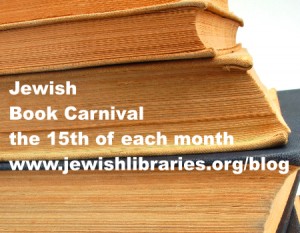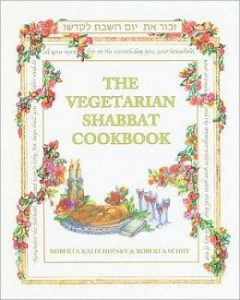I once again had the pleasure of speaking with an HUC colleague about their latest work. Joshua Garroway, Assistant Professor of Early Christianity and Second Commonwealth and the Rabbi Michael Matuson Professorship for an Emerging Scholar, recently published his book Paul’s Gentile-Jews: neither Jew nor Gentile, but Both (Palgrave MacMillan, 2012)
SFS: Congratulations on your new book! You probably get asked this a lot, but how did a nice Jewish rabbi and scholar like you get interested in Christian texts and the inter-Testamental period of history?
JDG: This question comes up less than it might have a few decades ago, as the number of Jews interested in the origins of Christianity has increased considerably. There are now a couple dozen Jews with expertise in early Christian studies and countless Jewish readers interested in books on the topic. My own personal adventure began as an undergraduate student at Duke University, where I pursued seriously a childhood curiosity about ancient Roman culture. This pursuit led to studies of Judaism and Christianity in antiquity and eventually to a degree in religious studies. In rabbinical school I came under the tutelage of a number of rabbis who suggested that an academic rabbinate might be the best choice for me, among them Rabbi Michael Cook, professor of ancient Christianity.
When considering the field in which I would pursue a doctorate, I was given good advice by my mentors: choose a field whose questions keep you up at night. The mystery of the historical Jesus, the puzzles in Paul’s epistles, the relationship of ancient Judaism to emerging Christianity–these questions fascinate me. Why? I suppose it’s because it’s such a crucial moment (pun intended) in the history of western civilization; though, admittedly, thrice weekly sessions with a good analyst might unearth different motivations. That will have to wait until my schedule and my wallet permit it, however.
SFS: I admit I felt a little trepidation picking up your book; I found the title to be a little off-putting and confusing. What do you mean by “gentile” and “gentile-Jews”?
JDG: Actually, the term “Gentile-Jew” is supposed to be off-putting and confusing. It’s a term I used to describe the Gentiles in Paul’s communities who became baptized into the death and resurrection of Christ and as a result changed their fundamental orientation toward life. They expected Christ to return imminently to judge the world and they believed that their baptism would enable them to stand justified before him in that moment. These were not Jewish folks who believed in Jesus’ resurrection and expected his return, such as the apostles. Nor were they Gentiles who, as part and parcel of the baptism into Christ, became circumcised, accepted the commandments of the Torah, and for all intents and purposes became Jews. These were Gentiles who remained uncircumcised, did not keep kosher, observe the Sabbath, and so on. The argument in my book is that Paul nevertheless believed that such Gentiles were in fact the most authentic sort of Jew, because in the wake of Christ’s death and resurrection the parameters of Jewish identity had been radically redefined. It was now faith and baptism alone that made one a circumcised, Torah observant, and a direct descendant of Abraham. Of course, nearly everyone else looking at such people would have identified them as uncircumcised, non-Torah observant Gentiles. It’s the very state of being simultaneously identified as the most authentic sort of Jew (by Paul) and authentically Gentile (by others) that is captured in the confusing and off-putting expression “Gentile-Jew.”
SFS: I was fascinated to learn that the “proto-Christians” (my term) were seen as a sect of Judaism like the Pharisees or Sadducees.
JDG: It can make sense to see earliest Christianity as somewhat analogous to other Jewish sects in the first century, but mostly so when it comes to the Christian communities in the Land of Israel comprised of Jews (e.g., the first church communities in Jerusalem). The comparison is less apt when we’re dealing with Gentile initiates.
SFS: It seems that at times you equate “Jews” with “monotheists” so therefore is someone gave up their multiple idols because of a belief in Jesus, they must be a form of “Jew.”
JSG: I don’t mean to equate “Jews” with “monotheists,” as being a Jew in antiquity did not necessarily mean one was a monotheist and being a monotheist did not necessarily mean one was a Jew. Plus, our notion of monotheism is not the same as what monotheism meant in antiquity. But it’s true that one of the several characteristics that typified Jews in antiquity was their peculiar dedication to a single, invisible God in a single, idol-less Temple, and their spurning of other gods and idols. And so, yes, to some extent even Gentile believers in Jesus who abandoned idols and pantheons may have understood this transformation as a turn towards a Jewish way of life.
SFS: You describe Jewishness and gentileness (gentility?) as the end points of a spectrum and give a list of requirements that could be used to define a Jew (e.g. circumcision, observance of dietary laws, observance of Sabbath and holidays, Jewish parents, etc.). This is a list of inclusionary items. At what point did belief in the divinity of Jesus become an exclusionary item?
JDG: Well, that’s the $64,000 question (not adjusted for inflation). The most accurate, least helpful answer is that it occurred in different ways, in different places, at different times between the first century and the fourth. Tracing the development of this so-called “parting of the ways” (a term that is losing favor) has become a very vibrant area of research in early Jewish and Christian studies. In short, some of the important points in the process frequently addressed by scholars are the law-free Gentile mission of Paul, the destruction of the Temple, the Fiscus Judaicus tax (imposed by Rome after the first Jewish War), the birkat minim, the rise of rabbinic hegemony, and the Christianization of the Roman Empire
SFS: In your discussion of Romans 4:-12, you say that Paul considered Abraham to be the ancestor of all the followers of Jesus regardless of whether they have Jewish or gentile backgrounds. Is this a parallel to the belief that Jesus died for his followers sins; that Abraham was circumcised as a symbol of his followers faith without them having to be circumcised themselves?
JDG: I read Rom. 4:1-12 as the culmination of a lengthy argument in which Paul explains to his Gentile readership how they will be able to stand justified before Jesus upon his imminent return. Many such Gentiles, it seems, believed that “becoming Jewish,” as we might understand it, was the best course of action. They should become circumcised, accept the commandments of the Torah, and so on. After all, what better way to be reconciled to the God of Israel than to embrace the laws given by the God of Israel! According to Paul, however, Gentiles are incorrigibly sinful and their effort to live like Jews will inevitably fail. Indeed, the very reason that Jesus died and rose was precisely so that Gentiles, by becoming baptized into that death and resurrection, would have access to another avenue into the covenant with God. They need to become Jewish, so to speak, but Paul contends that baptism produces a more authentically Jewish identity than one would acquire by becoming circumcised and embracing the Torah. For Paul, baptism into Christ transforms Gentiles ontologically by furnishing them the circumcised penis required for admission into the covenant of Abraham and even line of physical descent from Abraham. They become Abraham’s children and members of Abraham’s covenant.





